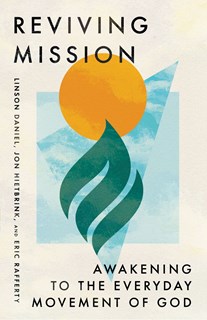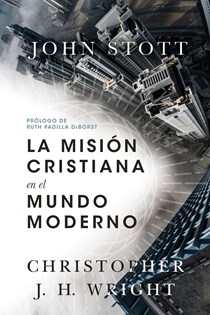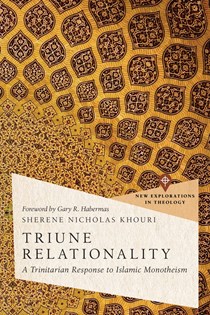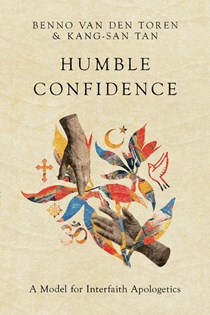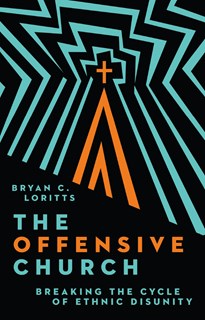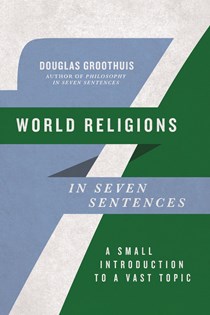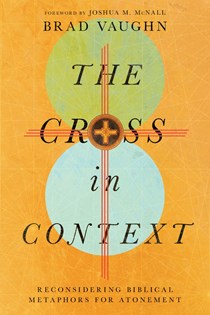Missions, Intercultural Studies, & Global Christianity
-
 paperback
paperbackThe Unbiased Self
The Psychology of Overcoming Cognitive Bias
by Erin Devers
A Christian Perspective on Overcoming Cognitive Bias
So much human behavior can be explained by two motives: we want to be right, and we want to feel good about ourselves. But the tension between these two motives makes us especially vulnerable to bias—and bias distorts our view of the world and of ourselves and can keep us from doing even what we know is right.
In The ...
-
Reviving Mission
Awakening to the Everyday Movement of God
by Linson Daniel, Jon Hietbrink, and Eric Rafferty
God's mission is for everyone, every day.
In the midst of societal disruption and disillusionment, we're seeing signs of a new season of God bringing people into renewal and revival. Jesus is the Sent One who invites us to become like him and live as sent people. God is leading us into a new normal where all of us—not just the professionals—can encounter him and experience ...
-
La misión cristiana en el mundo moderno
by John R. W. Stott and Christopher J. H. Wright
Foreword by Ruth Padilla DeBorstJesús nos envía al mundo de la misma manera que el Padre lo envió a él. Sin embargo, aun miles de años después, muchos cristianos todavía no se ponen de acuerdo que incluye esto. Algunos creen que el enfoque de la misión cristiana es evangelizar y «salvar almas». Otros enfatizan asuntos de justicia global o la labor de alivio y desarrollo. ¿Acaso solo una de estas dos opiniones ...
-
Triune Relationality
A Trinitarian Response to Islamic Monotheism
New Explorations in Theology
by Sherene Nicholas Khouri
Foreword by Gary R. HabermasFor centuries, Christians and Muslims have engaged each other in debate and critique. A key area of disagreement is the nature of God: Is God a Trinity or absolutely one? To promote interfaith dialogue, Christians must understand the history of the conversation and also articulate the doctrine of the Trinity in reasonable, compelling ways.
In this New Explorations in Theology ...
-
Worth Seeing
Viewing Others Through God's Eyes
by Amy L. Williams
"We are in the business of seeing others, seeing them the way God sees them, and letting them know they have value."
Amy L. Williams has spent three decades doing ministry with youth in gangs and prisons. While most of society sees high-risk youth through lenses of fear or disregard, she has come to see them through God's eyes as having tremendous value and potential. Worth ...
-
Humble Confidence
A Model for Interfaith Apologetics
by Benno van den Toren and Kang-San Tan
Christianity Today Award of Merit
Today's cosmopolitan, multicultural, and multifaith environments call for new approaches to apologetics. The world still needs the good news of Jesus Christ, but to relate the transcultural gospel to diverse and ever-changing contexts, we must free Christian apologetics from dominant Western habits of mind ill-suited ...
-
The Offensive Church
Breaking the Cycle of Ethnic Disunity
by Bryan C. Loritts
Crises around race have put the church in a defensive posture, always reacting to racial conflicts in society. But Jesus wants more. He wants Christians to play offense by discipling people into a new humanity, where we push beyond mere diversity and into a biblical vision for ethnic unity.
Bryan Loritts calls Christians to proactively and intentionally live out the embodied ...
-
World Religions in Seven Sentences
A Small Introduction to a Vast Topic
Introductions in Seven Sentences
by Douglas Groothuis
Understanding the beliefs and practices of other faiths is essential not just to the task of interreligious dialogue, but also to grasping one's own faith.
In this brief volume in IVP Academic's Introductions in Seven Sentences, philosopher Douglas Groothuis creatively uses a single sentence representing each of several world religions as a way to open readers to their depth ...
-
The Cross in Context
Reconsidering Biblical Metaphors for Atonement
by Brad Vaughn
Foreword by Joshua M. McNallHow can a doctrine about reconciliation with God create so much controversy among God's people?
Theologian Brad Vaughn believes Christians can gain clarity and unity on the doctrine of the atonement through a renewed attention to the biblical evidence. While theological theories are necessary and useful, they can obscure reality as much as clarify it. And we're often ignorant ...
-
Global Christianity and Islam
Exploring History, Politics, and Beliefs
by Wafik W. Wahba
A Comprehensive Overview of Christianity and Islam
Together, the adherents of Christianity and Islam make up over half of the world's population, and their numbers are expected to keep growing. The influence of these two faiths—and their relations with each other—is seen in politics, economics, and social interactions. Religious identity and aspirations remain powerful and ...


